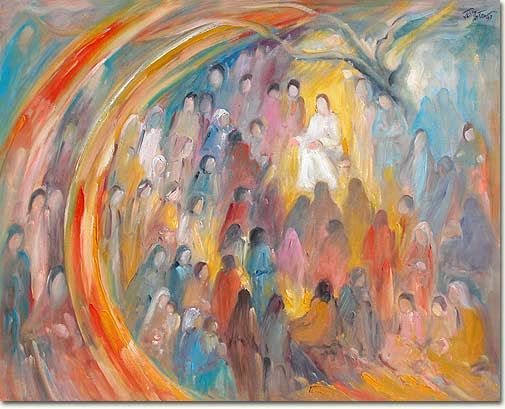
Conflicted
Tim: Our time with The Beatitudes is winding down.
Shea: We could have used another few weeks, because there’s so much to unpack!
Tim: What was especially exciting was how tiny epiphanies kept breaking through—quiet aha moments that put things in perspective.
Shea: Like last week’s recognition that Jesus isn’t talking about different groups of people. He’s summarizing characteristics and circumstances that define discipleship.
Tim: Which raises some very big questions. Can we embrace poverty to make room for God’s abundance? Will we master meekness, becoming ever more gentle even as we grow strong? Can we sustain a constant craving for justice, living with insatiable hunger and thirst? These questions define a true disciple of Christ.
Shea: And this week we have the final three sayings, which many find most difficult.
Tim: Why do you say that?
Shea: We’re looking at peacemakers, those who are persecuted, and finally Jesus’s warning that people will bully and tell lies about his followers. Given he’s talking to his disciples early on, it’s a rather unorthodox recruitment strategy!
Tim: That’s true. But Jesus often reminds his followers of the price they’ll pay. So he’s actually setting a precedent here. He’s letting them know there are going to be struggles and conflicts, within their group and from without as well.
Shea: It’s interesting that he saves that for last. I’d be tempted to put it out there right away and close with the “good stuff”—the hungry being filled, and so on.
Tim: Remember: Jesus is an expert community organizer. His leadership skills are unequaled. When we read these final three sayings closely, we see there’s more going on there than high-flown idealism. He’s training his folks.
Shea: You mean Jesus is picking up a guitar and leading a chorus of “Give Peace a Chance”? Just kidding…
Tim: Peace is never a bad thing, as long as it doesn’t mask complacency or coercion. But here Jesus is really lifting up gifts we need to survive conflict. He’s telling us, “Learn to build bridges, endure harassment, and outlive lies. And perhaps most important, learn to transform your anger and injury into joy and gladness.”
Shea: If only we could be on that hillside and get a sense of how the disciples feel…
Tim: Let’s see how it makes us feel! This Thursday will be one of those terrific times when we wrestle with all that Jesus is laying down. Are we up to it?
Shea: I hope so!

Join us this Thursday as we conclude our series, “The Gospel Guide to Happiness: Believing & Living the Beatitudes.” We meet at 7:30pm CDT in the chapel of Pilgrim Congregational Church, 460 Lake Street, Oak Park. Or you can catch us online at FB Live. See you soon!
We need your help!
As we think about the future of Gather, please let us know what gifts you bring and would like to share with the community. There are many roles that have to come together to make Gather happen every week. This includes setup, technical support, worship, managing handouts and information, coordinating drinks, and teardown. We need your help. Please let us know what type of service you’d be interested in!
Watch God Work,
Tim & Shea
As we prepare to become a vibrant worshipping community, we invite you to enjoy a Spotify playlist that captures the kind of worship we hope to embrace. Give it a spin while you’re driving. Make it your workout jam. Add it to your devotional time. Most of all, feel yourself becoming part of a sacred village of believers who love their God and one another!
Check out the Gather Worship Playlist here.





